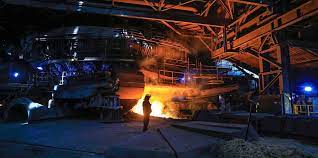In a fresh escalation of the energy standoff between Moscow and the European Union, Russia provided less gas to Europe on Wednesday. This will make it more difficult and expensive for the EU to fill up its reserves ahead of the winter heating season.
The key Russian gas delivery route to Europe, Nord Stream 1, has had its capacity halved to just a fifth of what it was before the supply drop was announced by Gazprom earlier this week.
After reaching compromise agreements to cap cuts for some countries, EU nations approved a weakened emergency plan to reduce gas demand the day before, hoping that lower consumption will lessen the impact in the event that Moscow completely stops supplying gas.
The plan highlights concerns that countries won’t be able to meet goals to fill storage and keep people warm during the winter and the risk that Europe’s already fragile economic growth may suffer another setback if gas must be rationed.
Moscow has attributed the supply restrictions to a number of technical problems, but Brussels has said that Russia is using the energy market as a tool to blackmail the EU and revenge for Western sanctions for its invasion of Ukraine.
Less than a week after the pipeline was reactivated following a scheduled 10-day maintenance hiatus, physical flows through Nord Stream 1 dropped to 14.4 million kilowatt hours per hour (kWh/h) between 0700 and 0800 GMT on Wednesday from over 28 million kWh/h the day before.
Germany’s network regulator, Klaus Mueller, claimed that the nation might yet avert a gas crisis that would force its rationing.
Since mid-June, supply disruptions have been particularly severe in Germany, the continent’s largest importer of Russian gas. As a result, Uniper, Germany’s gas importer, has needed a 15 billion euro ($15.21 billion) state bailout.
Both Uniper and the Italian energy company Eni reported receiving less gas from Gazprom than in prior days.
Mueller again urged individuals and businesses to conserve gas and prevent rationing.
Mueller emphasized that gas conservation was essential. He told the German radio station Deutschlandfunk, “I would like to hear fewer complaints, but reports (from industries saying) we as a sector are contributing to this.”
German business associations cautioned, however, that due to slow permission for switching from natural gas to other, more polluting fuels, enterprises may be forced to reduce production in order to gain greater savings.
Phase 2 of a three-stage emergency gas plan has been implemented in Germany, with the final “emergency” phase to begin once rationing cannot be avoided any longer.
“If you asked me whether it (a gas shortage) is approaching, then I would reply that if flows remain at 20% and if we can still add to storage facilities in the upcoming days and weeks, then we do not yet have a physical gas shortage, which would be the prerequisite for Phase 3,” said Mueller.

















